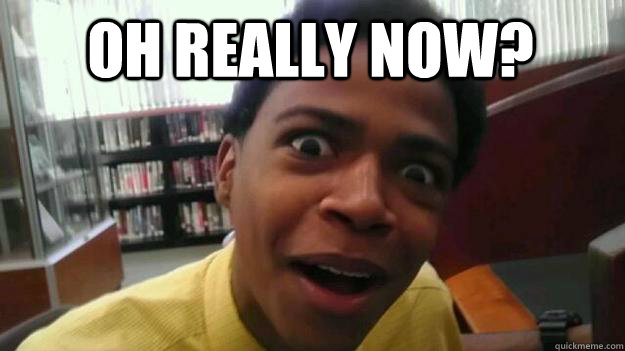Oh, We're Really in It Now: A Deep Dive into Meme Terms of Use
The internet's ever-evolving landscape is constantly spawning new trends, and memes are at the forefront of this digital evolution. But what happens when the playful world of memes collides with the serious world of legal terms of use? This article delves into the often-overlooked complexities of meme terms of use, exploring the legal implications and the ethical considerations surrounding their creation, distribution, and modification.
The Wild West of Meme Usage:
Memes, by their very nature, are inherently shareable and remixable. Their viral spread relies on user participation, with individuals adding their own creative spin through edits, captions, and reinterpretations. This organic, decentralized structure contrasts sharply with the strict regulations often found in traditional copyright law. Many users unknowingly navigate this grey area, leading to potential legal repercussions.
Understanding the Legal Landscape:
While the creation and distribution of memes often fall into a legal grey area, several key factors determine the potential for copyright infringement:
- Copyright Ownership: The original creator of an image or video used in a meme generally holds the copyright. Using their work without permission could lead to legal action.
- Fair Use: This legal doctrine allows limited use of copyrighted material for purposes such as criticism, commentary, news reporting, teaching, scholarship, or research. However, determining whether meme usage falls under fair use can be subjective and case-specific. Factors considered include the purpose and character of the use, the nature of the copyrighted work, the amount and substantiality of the portion used, and the effect of the use upon the potential market for or value of the copyrighted work.
- Transformative Use: A key element of fair use is the concept of transformation. If a meme significantly alters the original work, adding a new meaning or message, it may be considered transformative and more likely to fall under fair use.
- Licenses: Some creators explicitly grant permission for the use of their work through Creative Commons licenses or other licensing agreements. These licenses outline specific terms for using their creations, often allowing for sharing and modification under certain conditions.
The Ethical Considerations:
Beyond the legal ramifications, ethical considerations play a crucial role in meme usage:
- Consent and Attribution: While not always legally required, ethically, giving credit to the original creator of the meme's base image or video is a respectful practice.
- Respect for Intellectual Property: Understanding and respecting copyright laws is crucial. Unintentional infringement can still lead to consequences.
- Context and Impact: Memes can be powerful tools for communication, but they can also be used to spread misinformation, promote harmful stereotypes, or cause offense. Users should be mindful of the potential impact of their meme creations.
Navigating the Meme-osphere Responsibly:
To avoid potential legal and ethical issues, consider these best practices:
- Seek Permission: When in doubt, always seek permission from the copyright holder before using their work in a meme.
- Use Creative Commons Resources: Utilize images and videos explicitly licensed for sharing and modification under Creative Commons.
- Be Mindful of Context: Consider the potential impact of your meme before sharing it. Ensure it is not offensive, misleading, or harmful.
- Attribute Sources: When possible, credit the original creators of the images and videos used in your memes.
Conclusion:
The world of memes is a dynamic and often legally ambiguous space. By understanding the legal frameworks surrounding copyright, fair use, and licensing, and by upholding ethical considerations of consent and respect for intellectual property, users can navigate this landscape more responsibly and enjoy the creative potential of memes without facing unnecessary legal or ethical complications. Remember, a little awareness goes a long way in ensuring your meme-making remains fun, legal, and ethical.

